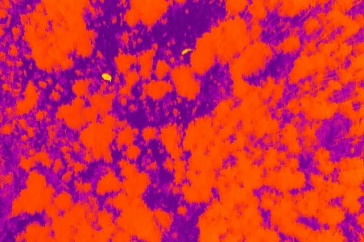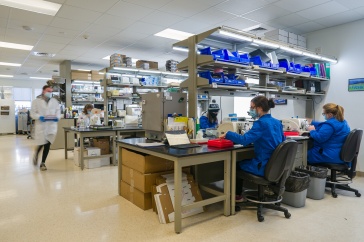May 21, 2014
Researchers at the NH Agricultural Experiment Station, College of Life Sciences and Agriculture at the University of New Hampshire, have received a $482,500 USDA grant to study the loss of environmental nitrogen in agricultural systems. A critical macronutrient that all plants need, nitrogen is an important part of plant growth and reproduction.
“Agricultural systems are highly susceptible to environmental nitrogen losses. These losses cost producers money, pollute groundwater, and contribute to the atmosphere nitrous oxide, a potent greenhouse gas. A better understanding of the plant-soil interactions that regulate nitrogen availability is needed to solve this problem, even in heavily fertilized agroecosystems,” according to NHAES researcher Stuart Grandy, assistant professor of natural resources and the environment.
Other scientists on the project are NHAES researcher Kirk Broders, assistant professor of plant pathology, Erik Hobbie, research associate professor of terrestrial ecology, and NHAES researcher Richard Smith, assistant professor of agroecology, all at UNH.
According to the researchers, plants can enhance nitrogen availability by providing soil microbes with an easily metabolized carbon source. If researchers better understood how plants coordinate this microbial “priming” process to coincide with plant’s demand for nitrogen, they believe agricultural nitrogen losses could be reduced.
Specifically, the NHAES researchers will look at the interactions between plant roots and soil microbes, including a type of symbiotic fungus that lives with roots called arbuscular mycorrhizal fungi, which influence soil nitrogen availability. They then will look at how these processes can be managed to maximize crop nitrogen availability while minimizing environmental nitrogen losses.
“Our work will advance understanding of plant-microbe controls on the nitrogen cycle, enabling agricultural systems that match nitrogen inputs more closely to plant demand, thereby reducing environmental nitrogen losses and creating more efficient, productive agricultural systems,” Grandy says.
Founded in 1887, the NH Agricultural Experiment Station at theUNH College of Life Sciences and Agriculture is an elemental component of New Hampshire's land-grant university heritage and mission. We steward federal and state funding to provide unbiased and objective research concerning diverse aspects of sustainable agriculture and food systems, aquaculture, forest management, and related wildlife and natural resources. We operate and maintain the Woodman and Kingman agronomy and horticultural farms, the Macfarlane Greenhouses, the Fairchild Dairy Teaching and Research Center, and the Organic Dairy Research Farm. Additional properties also provide forage, forests and woodlands in direct support to research, teaching, and outreach.
Lori Wright
-
Written By:
Lori Tyler Gula, PhD | NH Agricultural Experiment Station | lori.gula@unh.edu | 603-862-1452



















































